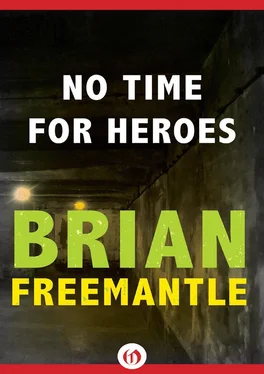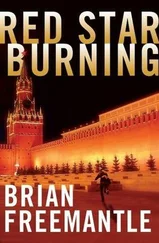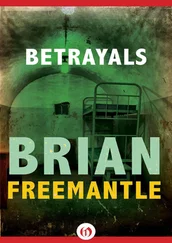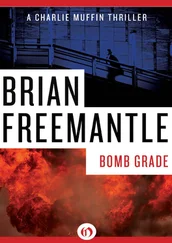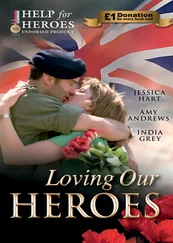Brian Freemantle - No Time for Heroes
Здесь есть возможность читать онлайн «Brian Freemantle - No Time for Heroes» весь текст электронной книги совершенно бесплатно (целиком полную версию без сокращений). В некоторых случаях можно слушать аудио, скачать через торрент в формате fb2 и присутствует краткое содержание. Жанр: Триллер, на английском языке. Описание произведения, (предисловие) а так же отзывы посетителей доступны на портале библиотеки ЛибКат.
- Название:No Time for Heroes
- Автор:
- Жанр:
- Год:неизвестен
- ISBN:нет данных
- Рейтинг книги:5 / 5. Голосов: 1
-
Избранное:Добавить в избранное
- Отзывы:
-
Ваша оценка:
- 100
- 1
- 2
- 3
- 4
- 5
No Time for Heroes: краткое содержание, описание и аннотация
Предлагаем к чтению аннотацию, описание, краткое содержание или предисловие (зависит от того, что написал сам автор книги «No Time for Heroes»). Если вы не нашли необходимую информацию о книге — напишите в комментариях, мы постараемся отыскать её.
No Time for Heroes — читать онлайн бесплатно полную книгу (весь текст) целиком
Ниже представлен текст книги, разбитый по страницам. Система сохранения места последней прочитанной страницы, позволяет с удобством читать онлайн бесплатно книгу «No Time for Heroes», без необходимости каждый раз заново искать на чём Вы остановились. Поставьте закладку, и сможете в любой момент перейти на страницу, на которой закончили чтение.
Интервал:
Закладка:
The Geneva meetings were little more than formalities, which Danilov thought they could have completed without an overnight stay, but the reservations had been made. Escorted and chauffeured by the embassy-attached FBI agent, an eager, fast-blinking man named Paul Jackson, they went first to meet Henri Charas, the police inspector handling all the Washington enquiries. It only took an hour to go through the file: there was no doubt the Swiss photograph of Ilya Nishin showed the same man as the print Danilov had taken from the Massachusetts Avenue apartment and which Raisa Serova had been so anxious to recover.
Charas drove with them to the irregularities department of the Finance Ministry, in Bern. Heinrich Bloch, the director, was a pedantic, stick-dry accountant who had their encounter recorded verbatim by a corseted secretary, and insisted upon giving details of the access treaty, which they didn’t want, before getting to the Svahbodniy corporation, which they did. The incorporation documents had already been translated into English and Russian, from the original French, for their benefit.
An anstalt was a corporation which did not issue shares for the benefit either of the founder or of others. Instead the founder – or holder of the Founder’s Certificate, which was a bearer instrument showing all the ownership rights – had power to amend the articles of incorporation, appoint or remove directors and name beneficiaries.
It need not necessarily be profit-making, nor operate as a business: it could be a holding company, which seemed to be the case with Svahbodniy. It had been founded with an initial deposit of $30,000,000, in June, 1991: Ilya losifovich Nishin was recorded as the founder, and the other directors were Yuri Yermolovich Ryzhikev, Vladimir Aleksai Piotrovsky, Vladimir Alekseivich Kaplan and Michel Paulac – who was protectively identified both by his adopted Swiss name of Paulac and also as Mikhail Panzhevsky.
The change in the board and control of the anstalt had come, under the beneficiary clause, in April, 1992, upon the death of Ilya Nishin. None of the $30,000,000 appeared to have been used for any transaction: commission payments, which had been drawn in cash in the name of Michel Paulac, had been met by interest earned upon the original deposits.
In the records of the corporation there was an enquiry by a lawyer acting for Yuri Ryzhikev, concerning the status of the corporation after Nishin’s death. Another, separate approach had been made since the freezing of the account under the Bern/Washington agreement.
‘We’ve been lied to,’ said Danilov.
‘But very well,’ agreed Cowley.
‘How widely is this drug treaty known about?’
‘If it was public knowledge, we wouldn’t be able to trace the bad guys, would we?’ said Cowley.
‘The Swiss are extremely good at keeping secrets,’ said Bloch.
‘Good,’ smiled Danilov.
CHAPTER FIFTY-TWO
Danilov was glad of the silence on the flight from Geneva, preferring to think rather than talk. He tried to work things out in the sequence in which they had to unfold, but as he fitted all the pieces together – guessing at the few still missing – his concentration increasingly focused upon the American. Cowley had saved him, in the beginning: unknowingly, a lot of the time, but by his mere presence Cowley had prevented his destruction. Would it be possible for him, in return, to block what was inevitable for Cowley? Danilov wanted to. He didn’t, at that stage, know how he could.
He was sure he knew what the official reaction would be to the evidence he already had and which would, he was also sure, be sufficient for a prosecution. And even more than sufficient for an unthinkable diplomatic disaster. Danilov determined, in the next few hours and the next few days, always to keep in mind how he might achieve the favour-for-favour balance, Russian style, to help Cowley. He did not consider discussing it with the American: there was virtually nothing to discuss.
With the importance of sequence – and protocol – in mind, Nikolai Smolin was the first person Danilov contacted upon arrival at Petrovka. He telephoned from the now unoccupied director’s suite, which he commandeered without authority. He didn’t suspect Galina Kanayev as much as he had her predecessor, but the move freed them from any eavesdropping and he wasn’t sure what he, Pavin and Cowley might have to discuss.
‘There’s enough for a case?’ demanded Smolin.
‘Probably several.’
‘Involving people presently in government?’
‘I think so.’
‘Do the Americans know?’
Always the same concern, Danilov recognised. ‘Yes.’
‘It has to be a full discussion?’
‘Definitely.’
Danilov briefed Pavin on what he wanted before the official encounter, not intending to consider anything that had been assembled in their absence until Pavin pointed out the intercept of Olga and Kosov’s outing the previous Saturday. There was a transcript, but Danilov insisted on hearing the actual tape.
Cowley shifted, awkwardly, at the disembodied conversation, but Danilov did not feel embarrassed nor angered at anything Olga said. His sole emotion was for Olga herself. She sounded so sadly hopeful, so pleased, at being spoiled and flattered: at being picked out for any sort of attention. His awareness of why she had been picked out, which Olga didn’t know, worsened the feeling, gouging deeper. He couldn’t remember ever having spoiled or flattered her, not even in the early days, when he’d thought he loved her and that she loved him. He’d never bought her a nonsense present, for no other reason except to do it: never thought of doing something totally unexpected – which he could have afforded, when he had accepted tributes. What had happened to their marriage had been his fault, Danilov decided, listening to the stilted, almost artificial exchange. Olga had stopped bothering because he had stopped bothering. Olga – poor, gauche, never-getting-it-quite-right Olga – sounded so desperately vulnerable; how lost – how vulnerable – would she be when he divorced her, leaving her quite alone? He wouldn’t leave her quite alone, Danilov determined, at that moment. He’d have to support her, and not just financially, but by being there for her, to help her and look after her: see she didn’t get into any real difficulty. Larissa would agree – he’d talk it through with her first, of course. Like he had to talk through so much else with her. Larissa had to know how difficult things might be for them, in the very near future.
He was vaguely aware of the discomfited Cowley addressing him.
‘It was naive of him to imagine you’d tell her anything on the telephone,’ said the American. ‘Tell her anything at all, for that matter.’
He hadn’t even called her from Italy, Danilov realised: even now, to tell her he was back in Moscow. His only concern had been to amass $250 for the Tatarovo apartment he and Larissa were going to take. ‘Perhaps more desperate than naive.’
They were both surprised by the quickness of Pavin’s return.
‘It was very easy,’ said Pavin. ‘Ilya Iosifovich Nishin was Deputy Chief Accountant at the Finance Ministry. He died in April, 1992.’
‘Kaplan?’ questioned Cowley.
‘Vladimir Aleksaivich Kaplan is the head of the American directorate at the Foreign Ministry,’ said Pavin. ‘He has been, for the past five years.’
To Cowley, Danilov said: ‘The Serovs would travel on diplomatic passports. Yasev, too. That would make it easier for your people to trace, wouldn’t it?’
‘I guess so,’ accepted Cowley. ‘Sure you’re not getting too conspiracy happy?’
‘I want it all!’ said Danilov determinedly.
Pavin’s files on the murder of Lena Zurov were predictably meticulous. She’d been found dead in her own apartment, on Hasek Street, near the zoological gardens. There was a range of sexual paraphernalia in the apartment: dildos of various sizes, some whips and handcuffs and some vibrators as well as a selection of pornographic photographs, in some of which she appeared. Danilov was aware of Cowley tensing, but Pavin continued without any pointed hesitation. Her birth certificate put her age at twenty-eight; there was no record of her ever having been married; there was evidence of sexual intercourse shortly before death. The forensic department at Petrovka was not equipped for DNA tracing, but vaginal swabs had been taken for the semen to be passed on to America. A total of $2,000 had been found in a locked drawer and a further $300 had been scattered over a bedside table, as if in hurried payment.
Читать дальшеИнтервал:
Закладка:
Похожие книги на «No Time for Heroes»
Представляем Вашему вниманию похожие книги на «No Time for Heroes» списком для выбора. Мы отобрали схожую по названию и смыслу литературу в надежде предоставить читателям больше вариантов отыскать новые, интересные, ещё непрочитанные произведения.
Обсуждение, отзывы о книге «No Time for Heroes» и просто собственные мнения читателей. Оставьте ваши комментарии, напишите, что Вы думаете о произведении, его смысле или главных героях. Укажите что конкретно понравилось, а что нет, и почему Вы так считаете.
